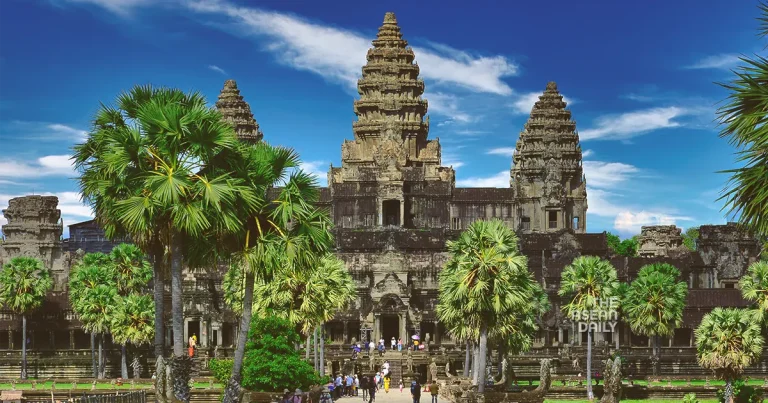5-3-2024 (PHNOM PENH) Cambodia is at the center of controversy as it defends its decision to relocate families residing near the renowned Angkor Wat temple complex. In response to allegations of violating international law, the Cambodian government released a report to UNESCO on Monday, stating that it was only relocating squatters and not residents of over 100 traditional villages.
The issue came to light when Amnesty International published a scathing report in November, accusing Cambodia of forcibly evicting thousands of families, some of whom had lived in the area for generations. The government claimed that the relocations were voluntary, but Amnesty’s investigation revealed testimonies from individuals who stated they were forced out of their homes. Additionally, the resettlement sites were deemed inadequate in terms of essential facilities such as water and sanitation. UNESCO was criticized for not challenging the Cambodian authorities on these matters.
UNESCO responded to the allegations by expressing deep concern and requesting an early report on the state of conservation at the Angkor site. They also urged Cambodia to ensure that any relocations were voluntary. The Angkor site, spanning approximately 400 square kilometers, holds significant archaeological value, including the iconic Angkor Wat temple. It plays a crucial role in Cambodia’s tourism industry.
In its report to UNESCO, the Cambodian government argued that the relocation efforts targeted individuals involved in the “illegal occupation of heritage land” but not residents of the traditional villages identified by UNESCO in 1992. According to Long Kosal, spokesperson for the Cambodian government body responsible for Angkor Wat, the villages are an integral part of Cambodia’s heritage, and only squatters are being relocated.
Amnesty International, however, criticized the government’s report, suggesting that crucial details were cherry-picked and that the criteria for identifying the 112 villages remained unclear. Montse Ferrer, head of Amnesty’s research team investigating the Angkor Wat resettlements, revealed that families who had lived around the temple complex for generations were being coerced into leaving their homes. Amnesty’s research indicated that very few relocations could be considered voluntary, with many families facing threats and intimidation.
Former Prime Minister Hun Sen, known for his speech pressuring people to leave the Angkor site, has been succeeded by his son, Hun Manet, who continues the relocation policies. The Cambodian government maintains that if the families are not relocated, Angkor risks losing its World Heritage status. UNESCO, on the other hand, has consistently rejected forced evictions and emphasized that they did not support or participate in the relocation program.
Cambodia began moving people away from the Angkor site in 2022 to make way for tourism development. Approximately half of the estimated 10,000 families have already been relocated to a new settlement called Run Ta Ek, located 25 kilometers away from Angkor Wat. The relocated families were provided with small plots of land, canned food, rice, and materials to build their homes. While conditions in the settlement have improved over time, with the addition of necessary infrastructure, the issue of debts incurred during construction and loss of income remains unresolved.
Prime Minister Hun Manet has assured that improvements are being made rapidly and invited observers to witness the changes within a year. The Cambodian government highlighted in its report to UNESCO that the relocated families now have the status of villagers, equal to the traditional population settled in the Angkor zone for generations.




